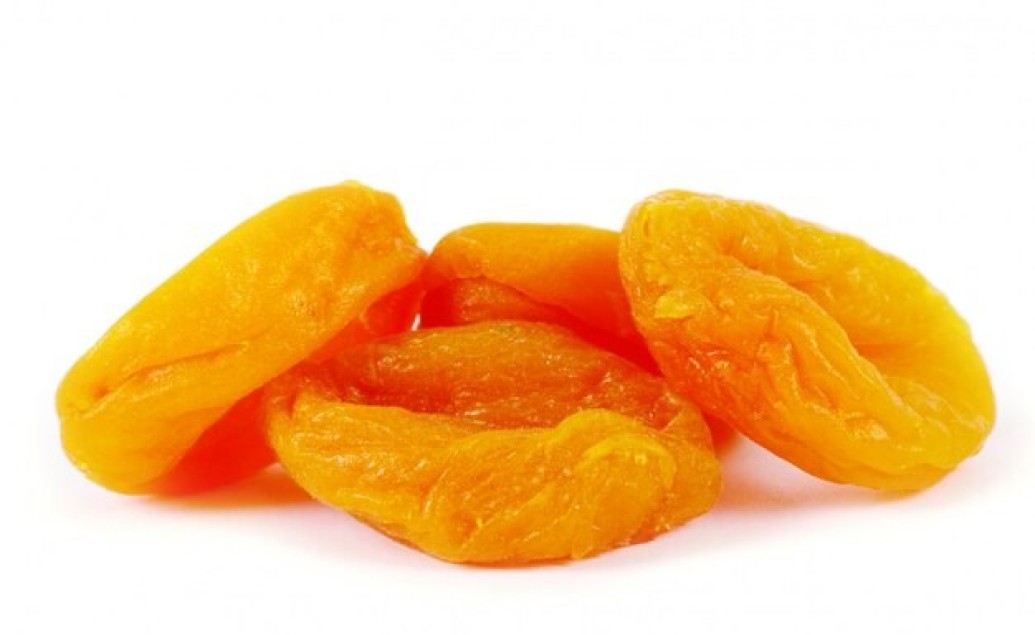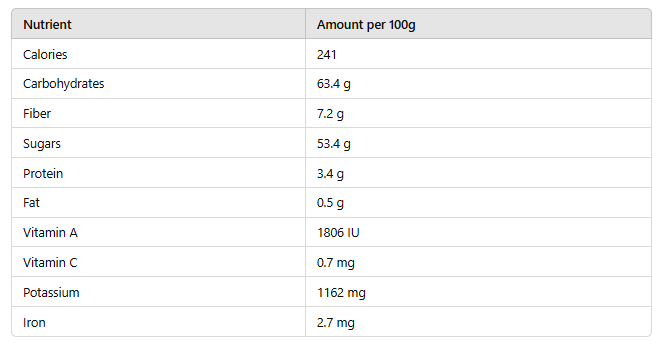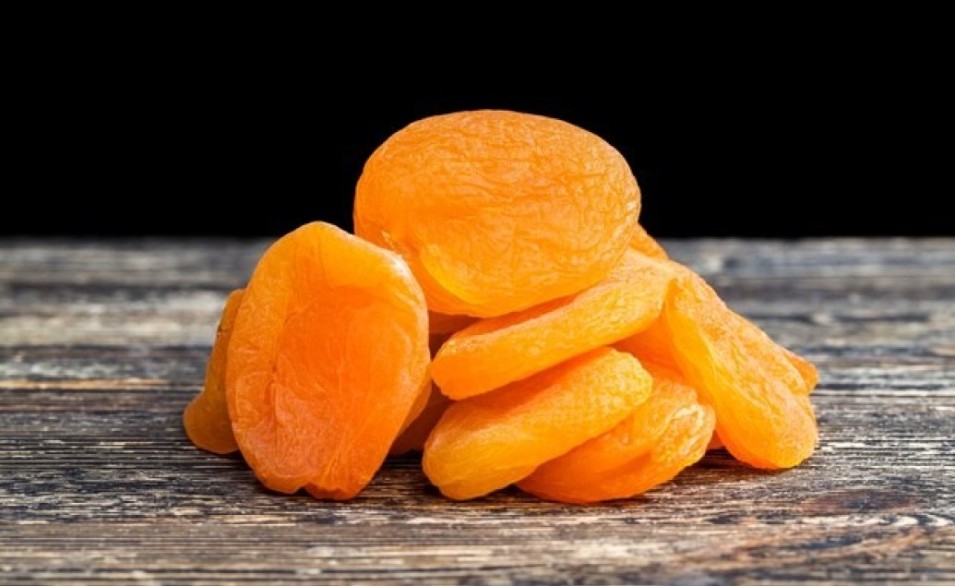Introduction
Dried apricots are more than just a tasty snack; they are a powerhouse of nutrients that can significantly contribute to your overall health. But how many calories do these delicious dried fruits contain, and what health benefits do they offer? In this blog, we’ll delve into the nutritional value of dried apricots, explore their health benefits, and provide tips on incorporating them into your diet. Whether you’re in the UK or the USA, understanding the nutritional profile of dried apricots can help you make informed dietary choices.

What Are Dried Apricots?
Dried apricots are the dehydrated form of fresh apricots, a stone fruit belonging to the Prunus family, which includes peaches and cherries. The drying process can be done through various methods, including sun-drying, air-drying, and mechanical drying. Dried apricots have a chewy texture and a sweet-tart flavor, making them a popular addition to different dishes or enjoyed as a snack.
Nutritional Value of Dried Apricots
Understanding dried apricots’ caloric content and nutritional value is essential for anyone looking to maintain a balanced diet. Below is a detailed table of the nutritional breakdown per 100 grams of dried apricots:

Key Nutritional Components
- Calories: Dried apricots are relatively calorie-dense due to the drying process, which concentrates their sugars and nutrients.
- Carbohydrates are high in carbohydrates, primarily natural sugars, making them a quick energy source.
- Fiber: The high fiber content aids digestion and helps maintain a feeling of fullness, which is beneficial for weight management.
- Vitamins and Minerals: Dried apricots are an excellent source of vitamins A and C, potassium, and iron, vital for various bodily functions.
Health Benefits of Dried Apricots
Rich in Nutrients
Dried apricots are packed with essential vitamins and minerals. High vitamin A levels support vision and immune function, while vitamin C is crucial for skin health and iron absorption.
High in Antioxidants
Antioxidants are compounds that help combat oxidative stress in the body. Dried apricots contain carotenoids, which benefit eye health and may reduce the risk of chronic diseases.

Digestive Health
The fiber content in dried apricots aids digestion and helps prevent constipation. Incorporating fiber into your diet promotes regular bowel movements and supports gut health.
Heart Health
The potassium in dried apricots helps regulate blood pressure levels, reducing the risk of heart disease. Additionally, apricot antioxidants can lower cholesterol levels and support overall heart health.
Eye Health
Dried apricots’ high vitamin A content is essential for maintaining healthy vision. Consuming adequate amounts of this vitamin can help reduce the risk of age-related macular degeneration.
Caloric Content and Serving Size
Caloric Content
As noted in the earlier table, dried apricots contain about 241 calories per 100 grams. However, being mindful of portion sizes is crucial, especially if you’re watching your caloric intake.
Recommended Serving Size
A typical serving size of dried apricots is about 30 grams, roughly 4 to 5 pieces. This portion contains approximately 72 calories and offers a good balance of nutrients without overindulging.

How to Incorporate Dried Apricots into Your Diet
Incorporating dried apricots into your diet can be both enjoyable and nutritious. Here are some tips:
List: Creative Ways to Use Dried Apricots
- In Salads: Add chopped dried apricots to green salads for a touch of sweetness.
- Smoothies: Blend dried apricots into your morning smoothie for added nutrients.
- Baked Goods: Use chopped dried apricots in muffins, cookies, or bread for natural sweetness.
- Trail Mix: Combine dried apricots with nuts and seeds for a healthy snack.
Tips and Best Practices
Best Practices for Storing Dried Apricots
To maintain the freshness and quality of dried apricots, consider the following storage tips:
- Keep Them in a Cool, Dry Place: Store dried apricots in an airtight container in a cool, dry area away from direct sunlight.
- Refrigerate for Extended Freshness: For longer storage, consider refrigerating them to prolong their shelf life.
How to Choose Quality Dried Apricots
When shopping for dried apricots, look for:
- Natural Options: Choose unsweetened, sulfur-free dried apricots to avoid added sugars and preservatives.
- Freshness: Check the packaging date and ensure they look plump and vibrant.
Checklist: How to Select the Best Dried Fruits
- Look for natural and organic options.
- Check for added sugars or preservatives.
- Examine the texture—avoid overly complex or dry pieces.
- Verify the expiration date.

Case Study or Expert Interview
Consider including a short interview with a nutritionist or dietitian to provide additional credibility.
Interview with a Nutritionist:
Q: What are your thoughts on the health benefits of dried apricots?
A: “Dried apricots are a fantastic snack option due to their high fiber content and rich nutrient profile. They are particularly beneficial for digestive health and provide a quick energy boost. Just be mindful of portion sizes since they are calorie-dense.”
Conclusion
In conclusion, dried apricots are not only delicious but also come packed with numerous health benefits. They offer a wealth of vitamins, minerals, and antioxidants, making them an excellent addition to your diet. Whether enjoyed on their own, added to dishes, or blended into smoothies, dried apricots can help you lead a healthier lifestyle.
Call to Action
Have you tried incorporating dried apricots into your meals? Share your favorite recipes or experiences in the comments below! Remember to subscribe for more nutritious tips and recipes!
FAQs
A serving size of about 30 grams of dried apricots contains approximately 72 calories.
Consuming 4 to 6 pieces of dried apricots daily is generally recommended for optimal health benefits.
Yes, dried apricots can be part of a weight-loss diet. Their high fiber content promotes satiety, helping to control appetite.
While they are beneficial for digestion, consuming large quantities of dried apricots can lead to digestive discomfort due to their high fiber and sugar content. Moderation is key.
Dried apricots have a higher calorie and sugar content per gram compared to fresh apricots due to the removal of water. However, they are also more concentrated sources of vitamins and minerals.






